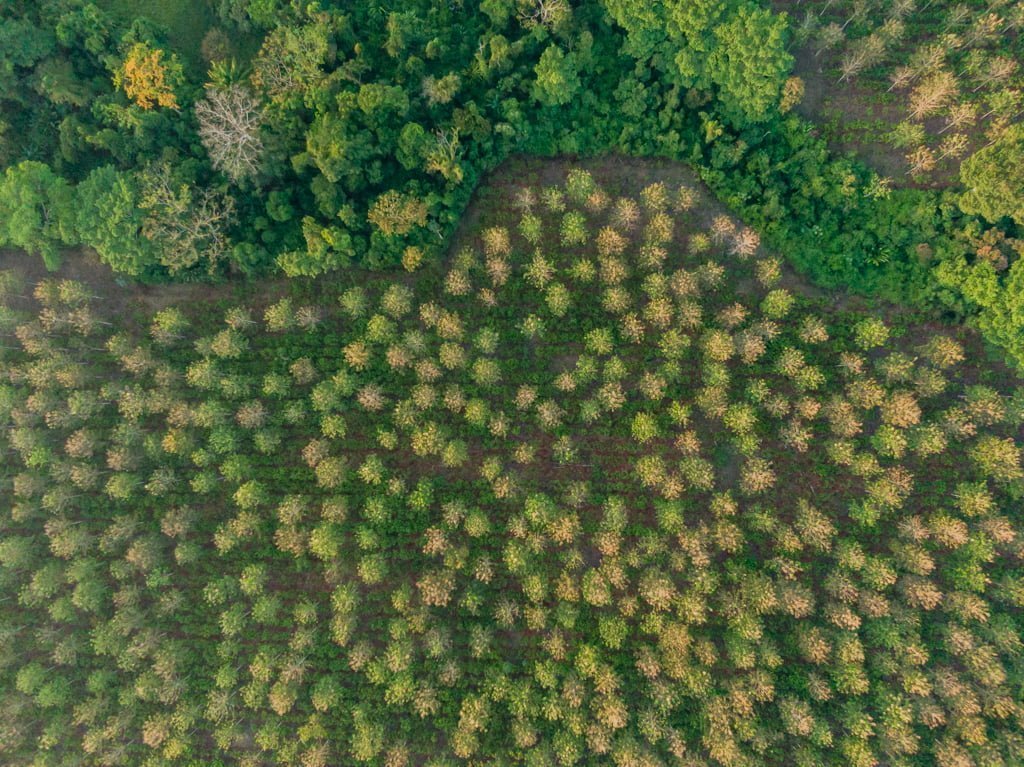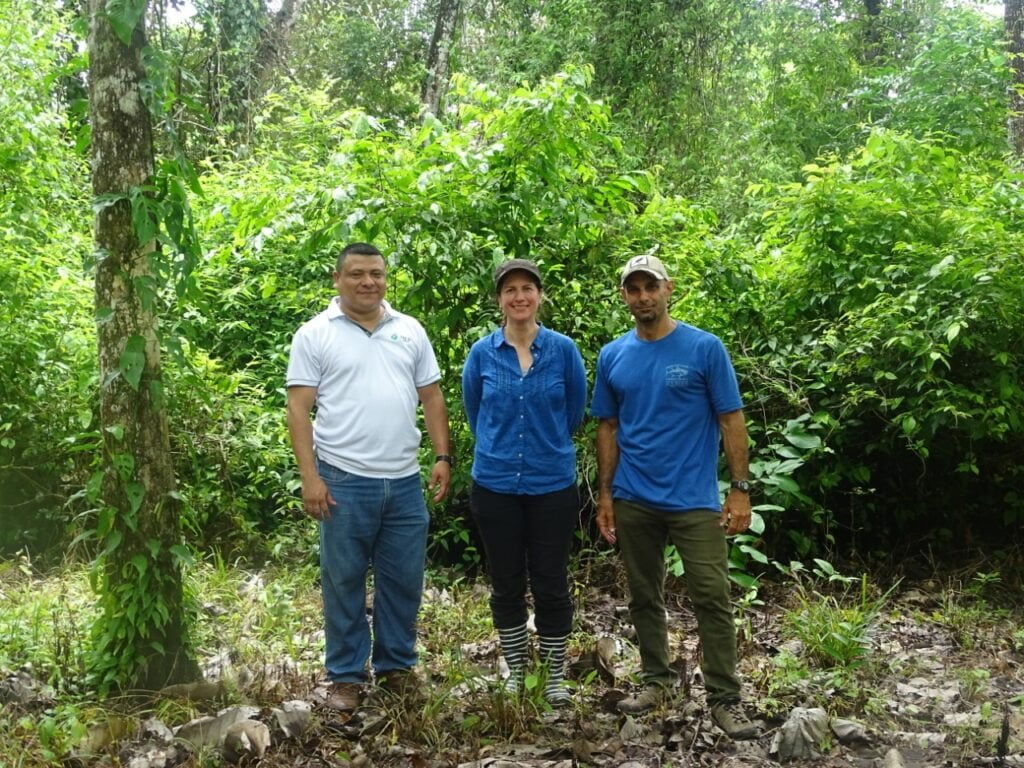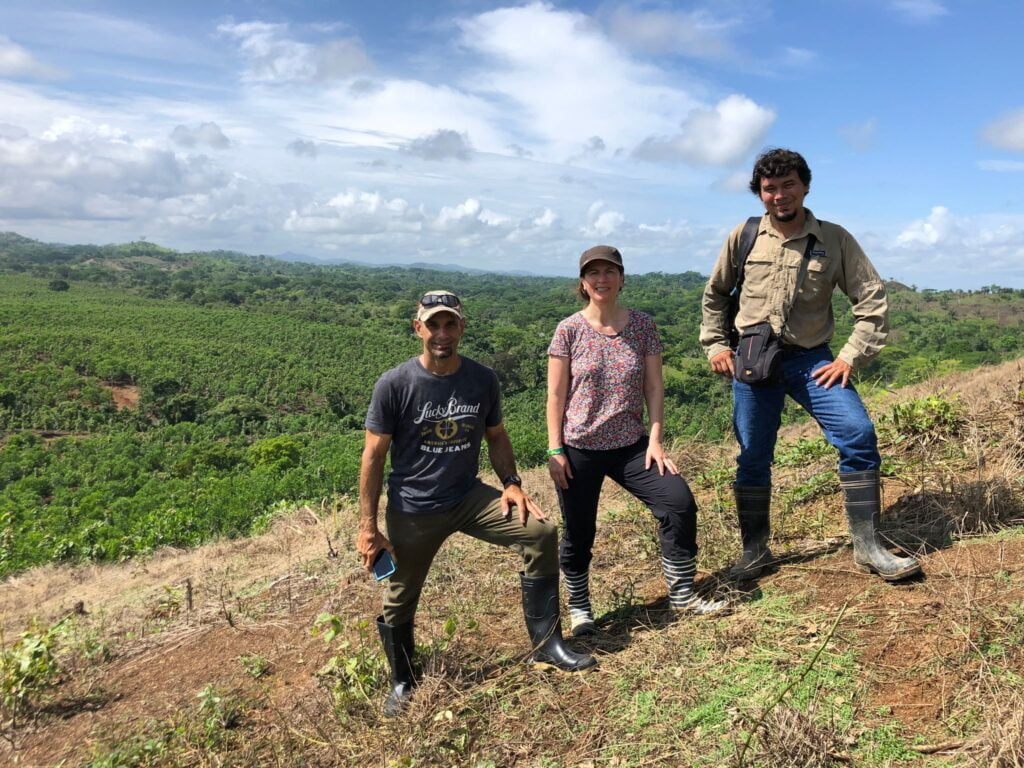News
The Biodiversity Consultancy visits and trains MLR Forestal for the advancement of its ecological restoration project

The international Finance Corporation’s (IFC) eight Performance Standards on Environmental and Social Sustainability are an international reference that for companies like MLR Forestal represent a fundamental component of their environmental and social risk management.
Performance Standard 6, as cited by the IFC, “recognizes that the protection and conservation of biodiversity, the maintenance of ecosystem services, and the sustainable management of living natural resources are fundamental to sustainable development.” And as Bárbara Goettsch, PhD in Conservation Biology, explained, the standard “regulates companies and development projects to avoid or minimize the impacts they have on biodiversity.”
Goettsch, who is a consultant at the international organization based in Cambridge, UNITED Kingdom The Biodiversity Consultancy, gave a workshop and made a field tour in the area of operations of MLR Forestal related to the application of this regulation that is closely linked to the ecological restoration plan promoted by the company to promote biodiversity.
“The MLR case could be used as an example to follow”
The work of the specialist consisted of providing training on the application of Performance Standard 6 and also making an analysis of all the processes of the company. “Our job so far is to review the materials that MLR has and make recommendations of what could help them not to have an impact or to have a positive impact on biodiversity,” she said.
However, an advantage of the company pointed out by Goettsch is that “MLR, thanks to the certification processes it already has, is no stranger to all this recommendations, and has many actions implemented. In addition, it has been taking steps to implement the standard and it is just a matter of seeing which of those actions correspond to each stage of the process.”

Between Monday, May 30 and Thursday, June 2, the expert visited the company’s areas of operation, teak plantations, cocoa plantations, conservation areas and areas to be restored; she also learned about data from biological monitoring, the processing of the teak wood and cocoa production, as well as the organization of the company.
After the visit, the expert said that the company is doing a lot of work regarding biodiversity and that “this could be replicated because the case of MLR is particular and could be used as an example to follow because everything they do in relation to biodiversity is voluntary.”
“Ecological restoration will have a positive impact on biodiversity”
One of the ways in which MLR Forestal will continue to contribute to biodiversity is with theecological restoration project with which it will take its conservation areas to another level with the repopulation of tree cover of specific areas.
This project, whose basic study was carried out by the Humboldt Center last year, was well valued by Goettsch: “If this restoration and mitigation process is handled as expected, it will have a positive impact on biodiversity. Restoring will improve the habitat quality of conservation areas, there will be greater diversity of plants and animals, soil erosion will be avoided and the water cycle will improve.”
Ecologist Fabio Buitrago, in charge of the ecological restoration project, said that the training was important because “it was possible to know in more detail and from the perspective of an international organization how to comply with international guidelines, in this case the IFC performance standard number six, which is an important guideline for responsible and sustainable forest operation with biodiversity.”
“MLR is a company that assumes the responsibility and challenge of producing while conserving biodiversity. That is why it is extremely valuable that the people who have some kind of decision-making power are aware of these regulations and the way in which the company can comply with it,” Buitrago said.

Good news for Nicaragua and the buffer zone of the Bosawás Reserve
Luis López, Manager of Sustainable Development of MLR Forestal, said that The Biodiversity Consultancy, whose experience is more than fifteen years advising companies in different parts of the world, has focused ecological restoration on performance standard six, “making this process more professional”.
For López, the advice of a renowned agency such as The Biodiversity Consultancy “is good news for Nicaragua and for biodiversity in the buffer zone of the Bosawás Biosphere Reserve because this restoration will allow a better connection for the displacement of species and will also be very important for the North Caribbean because it can inspire processes perhaps beyond the limits of Forest MLR.”
The next task of the company will be to start, this June, with the ecological restoration planting the selected species in the first 55 hectares of land, located in the Santa Fe and Matiz farms. In this way, López’s words will continue to be effective: “MLR Forestal is a company whose mission is to make a transparent business, a business that favors natural resources and favors biodiversity.”
Share




